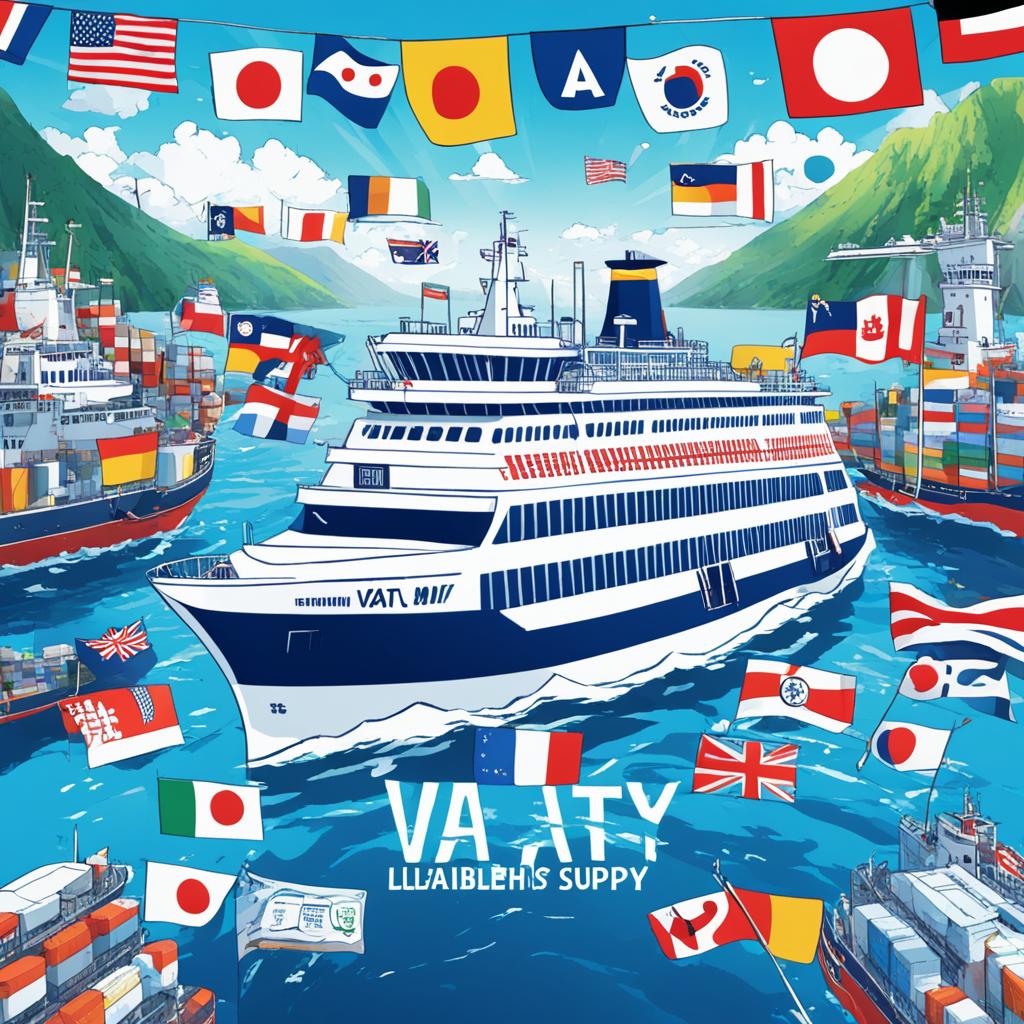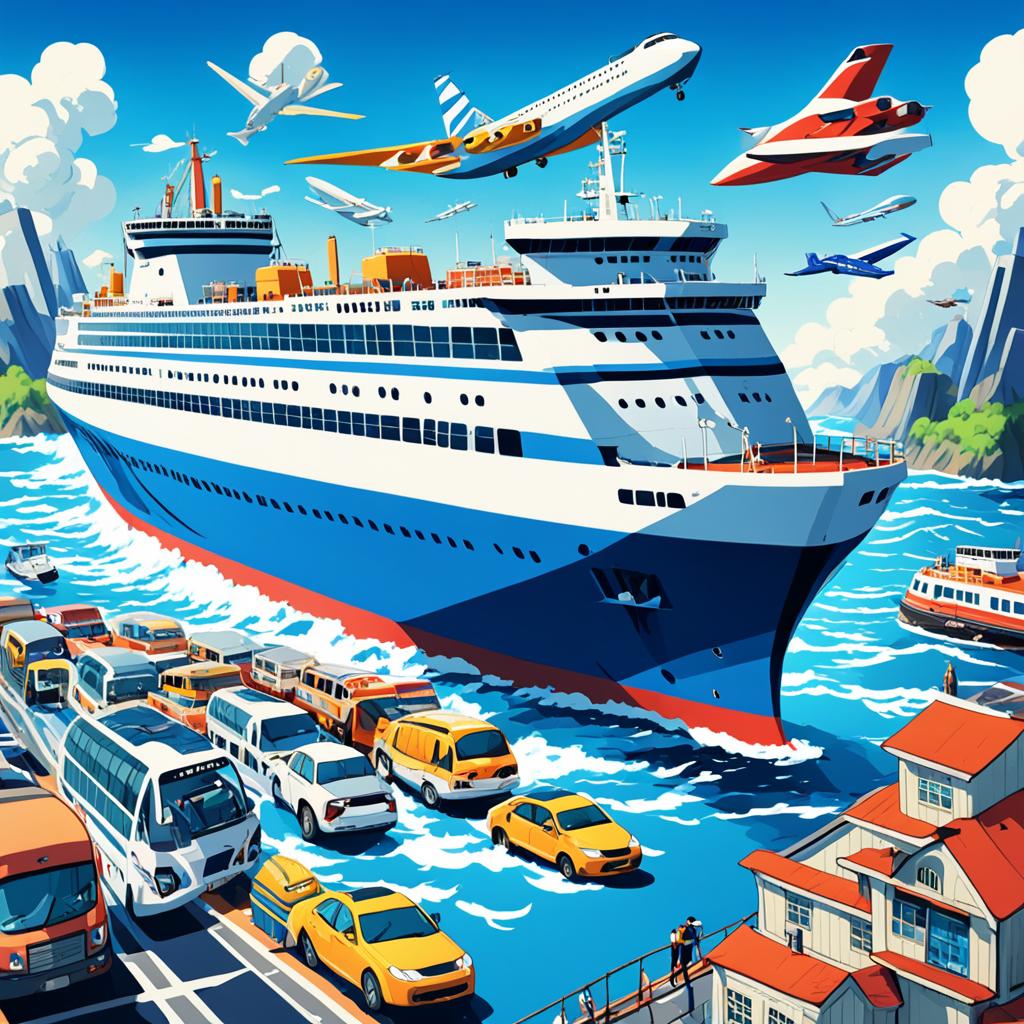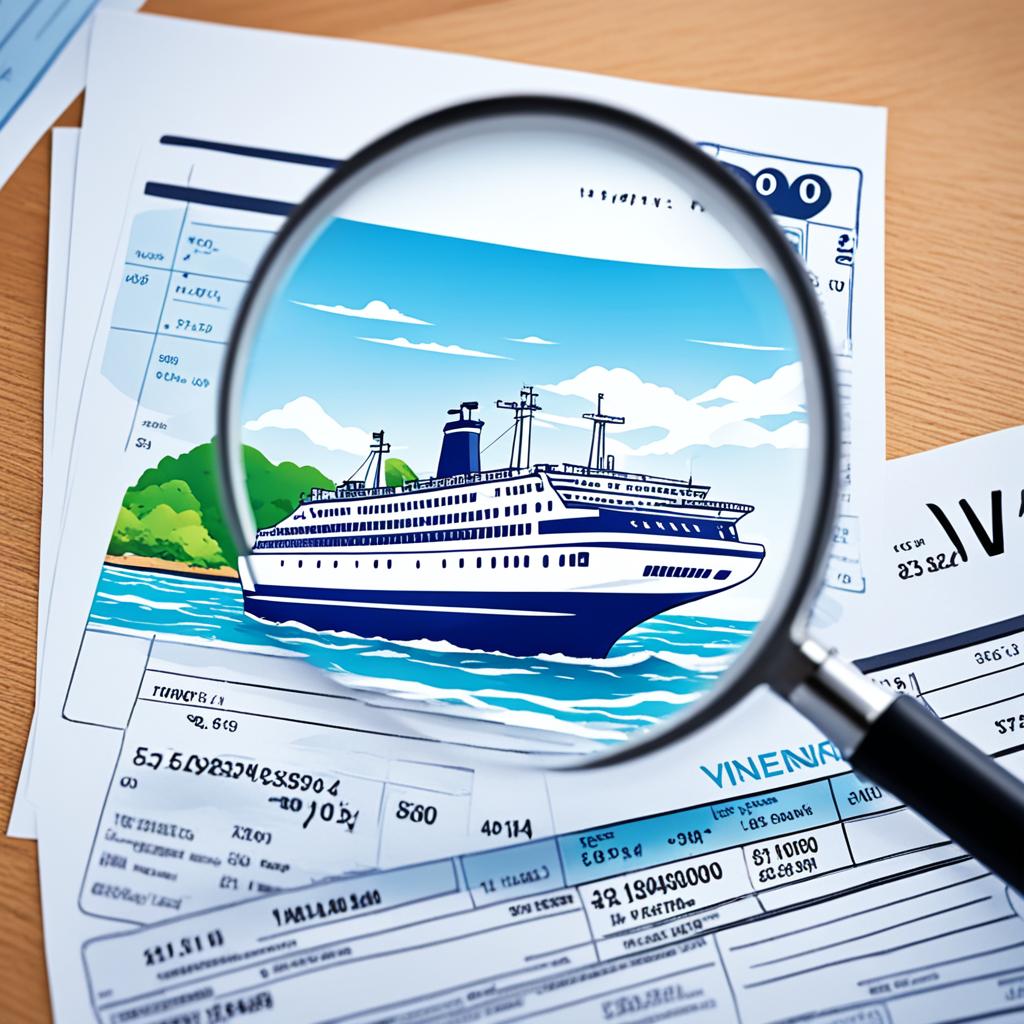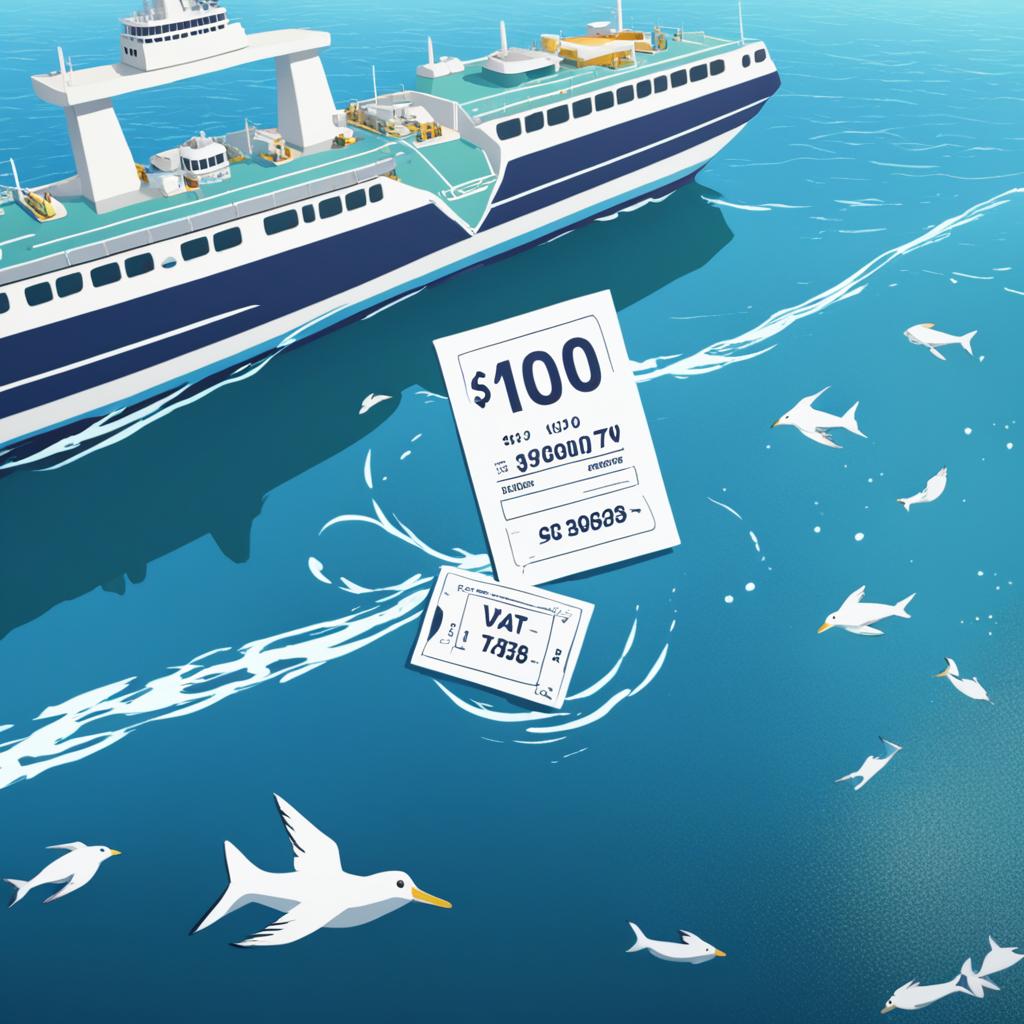Are you aware of the VAT rules for ferry travel expenses? If you’ve ever wondered about the taxation of ferry services or how the place of supply affects VAT liability, this article is for you. In this comprehensive guide, we will delve into the intricacies of VAT on ferry travel, uncovering the rules, exemptions, and treatment of ferry travel services. We’ll also explore the impact of VAT on other forms of transportation and provide insights on managing VAT expenses efficiently.
But first, let’s address the burning question: is there VAT on ferry travel? The answer may surprise you. Stay with us as we dive into the world of VAT regulations and discover the truth behind ferry travel taxation.
VAT Treatment of Ferry Travel Services
When it comes to the VAT treatment of ferry travel services, there are different rates that apply based on the nature of the service. The VAT rules for ferry travel can be categorized into zero-rated, reduced-rated, or standard-rated.
- Zero-rated transport applies to ferry travel from a place within or outside the UK, as long as the services are supplied in the UK. This means that no VAT is charged on these services.
- Reduced rate transport applies to ferry travel in cable-suspended chairs, bars, gondolas, or similar vehicles designed for less than 10 passengers. These services are subject to a reduced rate of VAT.
- Standard rate transport applies to ferry travel to or from a place of entertainment, recreation, or amusement. These services are subject to the standard rate of VAT.
Understanding the VAT treatment of ferry travel services is crucial for businesses and individuals involved in the industry. It helps ensure compliance with VAT regulations and accurate reporting of VAT liabilities. Now, let’s move on to the next section to explore the place of supply of ferry travel and its implications for VAT.
Place of Supply of Ferry Travel

When it comes to determining the VAT liability of ferry travel, the key factor to consider is the place of supply. This refers to where the transport actually takes place, which will determine whether it falls under the scope of UK VAT or not.
If the ferry travel occurs entirely within the UK, it is considered a domestic route and is subject to UK VAT. This means that the ferry operator should charge VAT on the ticket price for this type of travel.
On the other hand, if the ferry travel takes place both within and outside the UK, only the portion that occurs within the UK is subject to UK VAT. The portion of the journey outside the UK may be exempt from VAT.
It is important to note that visiting cruise ships from outside the UK, which do not pick up or drop off passengers in the UK, may be treated as being outside the scope of UK VAT. However, specific rules and regulations may apply in these cases, and it is advisable to seek professional advice to understand the VAT implications.
In summary, the place of supply of ferry travel is a crucial factor in determining the VAT liability. Depending on whether the travel is entirely within the UK or involves both the UK and other countries, different VAT rules may apply. To ensure compliance with VAT regulations and properly manage your ferry travel expenses, it is recommended to consult with a VAT specialist or tax advisor.
VAT on Other Forms of Transportation

When it comes to VAT on transportation, it’s important to understand the different rates and rules that apply. Here’s a breakdown of the VAT rates for trains, buses, and flights in the UK:
Train Tickets
Train tickets in the UK are zero-rated for VAT, meaning no VAT is charged on the fare. This applies to both domestic and international train travel.
Buses and Coaches
For domestic UK transport by bus or coach, VAT is usually zero-rated if the vehicle has at least ten seats. This means that no VAT is charged on the ticket price for these journeys.
Taxis and Private Hire Vehicles
In general, taxis and private hire vehicles are subject to standard-rate VAT. However, there is an exception if the driver is self-employed and not VAT registered, in which case no VAT is charged.
Flights
Public flights in the UK, whether domestic or international, are VAT-free. However, they are subject to Air Passenger Duty. On the other hand, private flights with fewer than ten passengers and pleasure flights are subject to standard rate VAT.
Understanding the VAT rates for different forms of transportation can help you make informed decisions about your travel expenses. Whether you’re booking a train ticket, catching a bus, or flying to your destination, being aware of the VAT implications can save you money.
| Transportation | VAT Treatment |
|---|---|
| Train Tickets | Zero-rated for VAT |
| Buses and Coaches | Usually zero-rated for VAT if the vehicle has at least ten seats |
| Taxis and Private Hire Vehicles | Subject to standard-rate VAT, unless the driver is self-employed and not VAT registered |
| Flights | Public flights are VAT-free, subject to Air Passenger Duty. Private flights with fewer than ten passengers and pleasure flights are subject to standard rate VAT. |
VAT Refunds and Accounting for Ferry Travel Expenses

When it comes to managing VAT on ferry travel expenses, businesses have the opportunity to reclaim VAT through the appropriate sections on their VAT return. This allows companies to offset their VAT payments and potentially receive refunds for eligible expenses.
To calculate the VAT refund, businesses need to compare the total amount of VAT paid on ferry travel expenses against the VAT owed. If the VAT paid exceeds the VAT owed, businesses are eligible for a refund.
Managing VAT obligations can be made easier by utilizing different VAT accounting schemes. Here are a few options:
- Standard VAT Accounting: Under this scheme, businesses need to keep track of all sales and purchases and report VAT on their quarterly VAT returns.
- Flat Rate Scheme: This scheme simplifies VAT calculations by applying a fixed flat rate percentage to the total turnover, making it easier to manage VAT payments.
- Cash Accounting: With the cash accounting scheme, businesses only need to account for VAT when they receive payment from their customers, rather than when the invoice is issued.
- Annual Accounting: This scheme allows businesses to make fixed monthly or quarterly VAT payments, providing them with more predictable VAT obligations throughout the year.
By choosing the right VAT accounting scheme and accurately recording and reporting their ferry travel expenses, businesses can navigate the complexities of VAT refunds and effectively manage their VAT obligations.
Comparison of VAT Accounting Schemes
| VAT Accounting Scheme | Key Features |
|---|---|
| Standard VAT Accounting | Quarterly reporting of VAT obligations based on sales and purchases |
| Flat Rate Scheme | Application of a fixed flat rate percentage to total turnover |
| Cash Accounting | Accounting for VAT when payment is received, rather than when the invoice is issued |
| Annual Accounting | Fixed monthly or quarterly VAT payments for more predictable obligations |
How Pleo Can Assist with VAT on Ferry Travel Expenses
Managing VAT expenses related to ferry travel can be a hassle for businesses. That’s where Pleo comes in. Pleo is a powerful tool designed to streamline expense management, ensuring accurate tracking of VAT payments and refunds.
With Pleo, you can say goodbye to the tedious task of manually tracking expenses and VAT calculations. Pleo automates the entire process, making it easy to identify and separate ferry travel expenses, track VAT payments, and manage VAT refunds effortlessly.
But Pleo doesn’t stop there. It also provides smarter spending insights, helping you make informed decisions about your business’s VAT-related expenses. Whether it’s identifying areas of cost optimization or monitoring compliance with VAT regulations, Pleo empowers you to take control.
Save time on administrative tasks and focus on what truly matters – growing your business. With Pleo, managing VAT expenses related to ferry travel has never been easier.
FAQ
Q: Is VAT charged on ferry travel?
A: VAT applies to ferry travel services, with different rates depending on the circumstances.
Q: What are the VAT rules for ferry travel expenses?
A: VAT place of supply rules determine the VAT liability for ferry travel. The rules vary based on factors such as the location of the customer and the type of ferry travel.
Q: How is VAT treated for ferry travel services?
A: VAT treatment for ferry travel can be zero-rated, reduced-rated, or standard-rated, depending on factors such as the destination and purpose of the travel.
Q: How is the place of supply determined for ferry travel?
A: The place of supply for ferry travel is determined by where the transport physically takes place. If the travel takes place entirely within the UK, it falls under the scope of UK VAT.
Q: What is the VAT treatment for other forms of transportation?
A: Train tickets in the UK are usually zero-rated for VAT, while domestic buses are also zero-rated if the vehicle has at least ten seats. Taxis and private hire vehicles are generally subject to standard-rate VAT. Public flights are VAT-free, while private flights and pleasure flights are subject to standard-rate VAT.
Q: How can businesses reclaim VAT on ferry travel expenses?
A: Businesses can reclaim VAT on ferry travel expenses by completing the appropriate sections on their VAT return. VAT refunds are calculated based on the amount of VAT paid versus the VAT owed.
Q: How can Pleo assist with managing VAT on ferry travel expenses?
A: Pleo is a tool that can help businesses manage VAT expenses related to ferry travel. It streamlines expense management, ensures accurate tracking of VAT payments and refunds, and provides smarter spending insights, saving time on administrative tasks.
